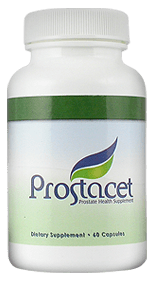We are the Best in Town With over 10 Years of Experience.
- Phone Number
- +251-910-858-302
- Yeka Sub-City, Woreda 11
Asmara Road, Addis Ababa, Ethiopia.
- Email Address
- info@addisagents.com
Prostate cancer specialists are still debating whether or not natural remedies is often effective against the cancerous tumors. The issue is the fact that many scientists and doctors who deal with prostate cancer haven’t yet joined the movement to endorse or recommend natural treatments. Plus one can imagine why; Doctors are under intense pressure to provide only the best & scientifically proven treatments available.
Through the years we’ve heard about a lot of the natural curatives or perhaps treatment options which are literally nothing more than the use of antioxidants, minerals, herbs as well as vitamins together to create the basis or foundation of a diet plan filled with the correct food needs required by cancer patients.
Based on its anabolic composition, saw Palmetto is often mentioned as a natural treatment for cancer. Saw Palmetto is additionally a highly – respected product that can help males suffering from erectile dysfunction or ED get much better results. Pygeum seems to support those struggling with an enlarged prostate, does prostadine really work; just click the next web site, while Cernilton appears to be utilized for dealing with prostatitis. Bazoton, or maybe stinging nettle, is yet another herb which is often used to deal with prostate problems.
Antioxidants can also be used in natural remedies to battle prostate cancer as well as to clean up prostate disorders. Resveratrol, Lycopene and Selenium are some of these compounds. These antioxidants are sold primarily as dietary dietary supplements, because they haven’t been clinically established to help battle cancer.
One point is for sure, the effectiveness of natural remedies for prostate cancer hasn’t gotten the admiration from the medical community and in many cases remain frowned upon as a means to treat prostate cancer and disorders. Perhaps this is going to change now, with a course at Columbia University which was very promising.
Dr. Aaron Katz has shown that modified citrus pectin (MCP) from citrus fruits can stop prostate cancer cell growth, which is published in a recently available publication. Pectin seems to in addition stimulate cell death in prostate cancer cells. Perhaps including the ones that are aggressive kinds of this particular ailment.
The modified citrus pectin has properties which protect against both kinds of prostate cancer, and it is both hormonal as well as hormonal resistant. This suggests that a modified citrus pectin may be useful against malignancy both as a preventive and therapeutic agent. Lead writer Jun Yan speculates the revised citrust pectin utilized in this study may be assimilated into the human body more readily, thereby allowing a greater awareness to get to the prostate gland.
MCP impacts the binding components of cancer cell area proteins known as galectins, preventing the cancer cells from adhering to one another and metastasizing or growing everywhere else in the human body. Presumably, ths citrus pectin prevents the surface area of cancer cells from anionsis or perhaps from drawing in blood vessels, which basically starves the cells.